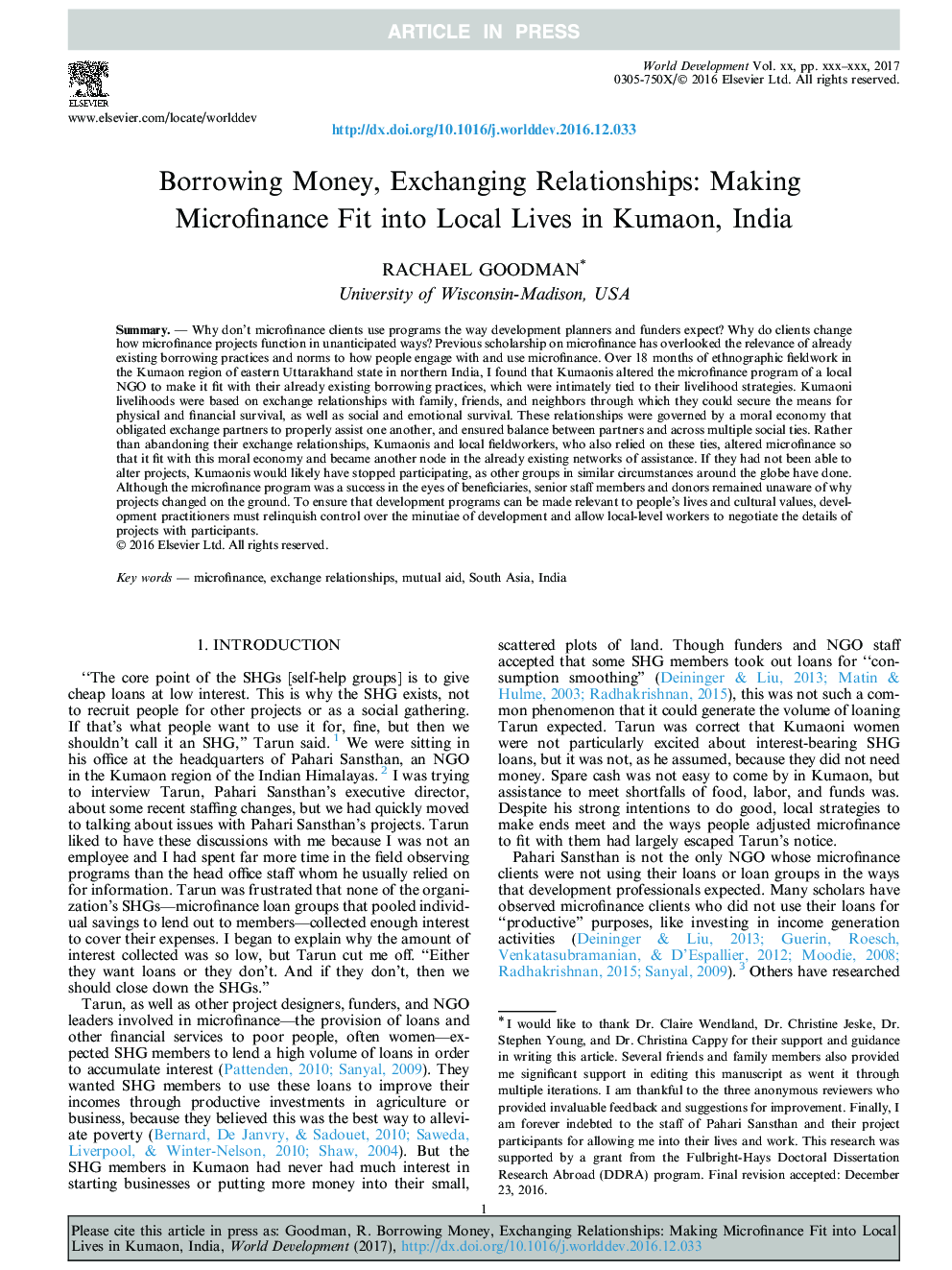| کد مقاله | کد نشریه | سال انتشار | مقاله انگلیسی | نسخه تمام متن |
|---|---|---|---|---|
| 5105312 | 1481125 | 2017 | 12 صفحه PDF | دانلود رایگان |
عنوان انگلیسی مقاله ISI
Borrowing Money, Exchanging Relationships: Making Microfinance Fit into Local Lives in Kumaon, India
ترجمه فارسی عنوان
قرض گرفتن پول، مبادله روابط: ایجاد کمک مالی به مکان های محلی در کوماون، هند
دانلود مقاله + سفارش ترجمه
دانلود مقاله ISI انگلیسی
رایگان برای ایرانیان
کلمات کلیدی
قرضه کوچک روابط مبادله، کمک دوطرفه، آسیای جنوبی، هند،
موضوعات مرتبط
علوم انسانی و اجتماعی
اقتصاد، اقتصادسنجی و امور مالی
اقتصاد و اقتصادسنجی
چکیده انگلیسی
Why don't microfinance clients use programs the way development planners and funders expect? Why do clients change how microfinance projects function in unanticipated ways? Previous scholarship on microfinance has overlooked the relevance of already existing borrowing practices and norms to how people engage with and use microfinance. Over 18Â months of ethnographic fieldwork in the Kumaon region of eastern Uttarakhand state in northern India, I found that Kumaonis altered the microfinance program of a local NGO to make it fit with their already existing borrowing practices, which were intimately tied to their livelihood strategies. Kumaoni livelihoods were based on exchange relationships with family, friends, and neighbors through which they could secure the means for physical and financial survival, as well as social and emotional survival. These relationships were governed by a moral economy that obligated exchange partners to properly assist one another, and ensured balance between partners and across multiple social ties. Rather than abandoning their exchange relationships, Kumaonis and local fieldworkers, who also relied on these ties, altered microfinance so that it fit with this moral economy and became another node in the already existing networks of assistance. If they had not been able to alter projects, Kumaonis would likely have stopped participating, as other groups in similar circumstances around the globe have done. Although the microfinance program was a success in the eyes of beneficiaries, senior staff members and donors remained unaware of why projects changed on the ground. To ensure that development programs can be made relevant to people's lives and cultural values, development practitioners must relinquish control over the minutiae of development and allow local-level workers to negotiate the details of projects with participants.
ناشر
Database: Elsevier - ScienceDirect (ساینس دایرکت)
Journal: World Development - Volume 93, May 2017, Pages 362-373
Journal: World Development - Volume 93, May 2017, Pages 362-373
نویسندگان
Rachael Goodman,
